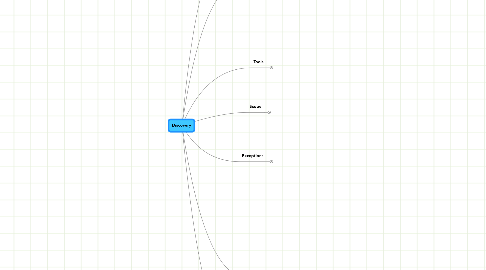
1. Formal Discovery not allowed until 26(f) discovery planning conference
2. 26(a)(1) Mandatory disclosures
2.1. Individuals with discoverable information
2.1.1. Who may be used to support claim/defense
2.2. Documents/tangible items
2.2.1. Which may be used to support claim/defense
2.3. Computation of damages
2.4. Insurance info that will be used to satisfy judgment
3. Tools
3.1. Party
3.1.1. Interogatories
3.1.1.1. 25 q's/party
3.1.2. Deposition
3.1.2.1. 10/side; 7 hours in 1 day each
3.1.2.2. Sworn testimony
3.1.2.3. 30(b)(6) Subpoena
3.1.2.3.1. Issues on an entity, not an individual
3.1.3. Request for production
3.1.3.1. Rule 34
3.1.4. Physical or mental exam
3.1.4.1. Rule 35
3.1.5. Request for admissions
3.1.5.1. Stipulations
3.1.5.1.1. To specific facts, not legal conclusions
3.1.5.2. Rule 36
3.1.5.2.1. 30 days to respond; after that, they are deemed admitted
3.2. Non-party
3.2.1. Depositions
3.2.1.1. Subpoena from district where they will be deposed
3.2.2. Documents or tangible items
3.2.2.1. Subpoena duces ticum
3.2.2.1.1. From district where production will take place
4. Scope
4.1. Information relevent to claims or defenses
5. Exceptions
5.1. Privileged info
5.1.1. Attorney-client privilege, etc...
5.1.2. Absolutely protected from discovery
5.2. Protective orders
5.2.1. No discovery protective order
5.2.2. Limited use protective order
5.3. Work Product
5.3.1. Documents or tangible items in anticipation of litigation
5.3.2. 1. Subjective belief that litigation was a real possibility; and was it objectively reasonable
5.3.3. 2. Was the primary purpose to aid in litigation
5.3.4. 3. By or for party or party's representative
5.3.5. Overcoming Work product exception
5.3.5.1. Substantial need and undue hardship
5.3.5.2. Previous statements
5.3.5.2.1. (i) a written statement that the person has signed or otherwise adopted or approved; or
5.3.5.2.2. (ii) a contemporaneous stenographic, mechanical, electrical, or other recording — or a transcription of it — that recites substantially verbatim the person's oral statement.
6. Experts
6.1. Actor
6.1.1. 26(a)(1)
6.1.2. ID them under 26(a)(2)
6.1.2.1. No report necessary
6.2. Retained
6.2.1. Testifying
6.2.1.1. ID them under 26(a)(2)
6.2.1.2. Written report
6.2.1.2.1. Opinions, bases for the opinions, materials used, exhibits
6.2.1.2.2. Compensation
6.2.1.2.3. Qualifications
6.2.1.2.4. Publications in the last 4 years
6.2.1.2.5. Who they have testified for in the last 10 years
6.2.1.3. Depositions follow report
6.2.2. Non Testifying
6.2.2.1. No discovery less exceptional circumstances
6.2.2.1.1. It is impossible to recreate a psychological exam a year later
7. Sanctions
7.1. Motion to compel
7.1.1. After Meet and confer
7.2. 37(b)
7.2.1. Violation of court order
7.2.1.1. Not immediately available
7.2.1.2. Exceptions
7.2.1.2.1. Failure to attend a properly noticed deposition
7.2.1.2.2. Failure to respond
7.3. 26(g)
7.3.1. Signature
7.3.1.1. Certification
7.3.2. Typical sanction
7.3.2.1. Cash
